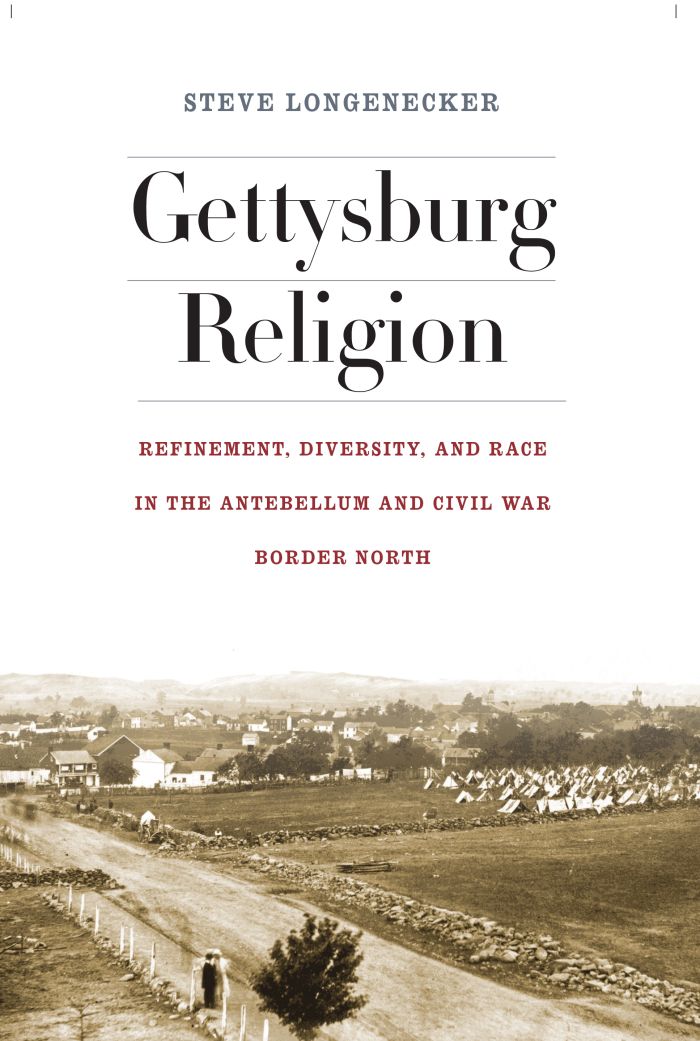Gettysburg Religion
Refinement, Diversity, and Race in the Antebellum and Civil War Border North

This book can be opened with

This book should be of special interest to American Lutheran scholars because of the exploration of the theme 'refinement' that Longnecker uses to define the way that the college and seminary leaders understood how religion and public life should relate to each other.——Lutheran Quarterly
Clear and engaging . . . Gettysburg Religion offers a local lens to see some of the surprising diversity of American religion and some of the interesting ways that religion interacts with the broader culture.——Ruth Alden Doan, Hollins University
This elegant and graceful study illuminates our understanding of America at the time of the Civil War in a remarkable way. It shines a subtle light into religion, private life, and public struggles, revealing living people among familiar shadows of the past. There is no other book like it.——Edward L. Ayers, Author of In the Presence of Mine Enemies: Civil War in the Heart of America
Longnecker's style is engaging and his prose elegant. His satisfying monograph is enlivened even more by the inclusion of what he calls 'divertimenti', brief vignettes throughout the text highlighting the stories of individual Gettysburg residents or families whose lives exemplify the themes of refinement, diversity, or war. Well worth a read. . .——H-Net Reviews
Longenecker has done an impressive job of research, bringing to light much that has previously been absent from works on the Battle of Gettysburg or on religion in the Civil War. His book is a welcome addition to both areas of study, worthy of reading by scholars of the Civil War, American religion, and Pennsylvania history.——Steve Woodworth, Texas Christian University

